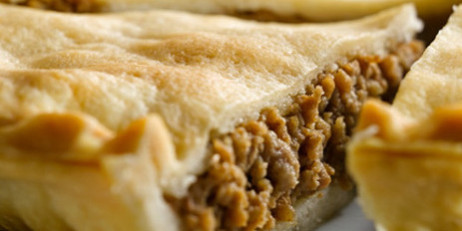Whether it is mashed potatoes, turkey pot pie or a slab of gooey chocolate cake, you can probably identify the comfort foods that help you feel better. And while you may not think about the science behind why these foods help improve your mood, many researchers are making these connections and testing exactly why comfort foods work so well.
What is a comfort food?
Comfort food is defined in Collins English Dictionary as “food that is enjoyable to eat and makes the eater feel better emotionally.” The Merriam-Webster Dictionary entry is “foods prepared in a traditional style, having a usually nostalgic or sentimental appeal.”
Naturally, comfort foods can be as individual as our cultural upbringing, so while one person may crave cookies or meatloaf, another might crave goulash or baklava. What you crave may also be related to your age and gender. Studies show that males prefer warm, hearty, meal-related comfort foods such as steak, casseroles, and soup, while females prefer snack foods such as chocolate and ice cream. In addition, younger people prefer more snack-related comfort foods compared to those over age 55.1
No matter which comfort food is favoured, it will certainly contain sugar, fat, or both, to provide what you crave. That’s because scientists have found eating foods rich in fat and sugar can actually help ease stress and make us feel good.
Fat to ease tension?
In a study from the British Journal of Nutrition, researchers showed that people whose dietary fat was cut from 41% to 25% of their total daily calories gave themselves higher ‘anger-hostility’ ratings. Those who continued with a high-fat diet felt that their ‘tension-anxiety’ ratings went down.2
Several researchers have proposed that the oral sensation of high-fat food may indirectly cause pleasure by triggering the “endogenous opioid peptide system”, also known as the “pleasure pathway,” in the brain.
Sweet comfort
The taste of sugar also provides stress-reducing pleasure. Scientists at the University of Cincinnati studied rats that were confined in narrow tubes — a stressful situation, even for a rat. After being fed a sugar solution (the rat version of comfort food), their heart rate and stress hormone levels dropped significantly. Interestingly, when the rats were given a sugar-rich drink directly into their stomachs (bypassing the taste buds), it had no significant effect on the rats’ stress levels.
The researchers concluded that the taste of sugary foods, but not the calorie content, can effectively buffer all major physiological and behavioural responses to stress. They are now studying the key brain circuits that underlie this “comfort food effect.”3
A comforting thought…
Whether fatty or sweet, there is a true biological basis to “comfort foods.” Maple Leaf Foodservice makes it easy to offer diners the comfort foods they crave while still being health conscious. For example, the new JMS Reduced Sodium Turkey Pot Pie has only 380 mg sodium per serving (a 39% reduction in sodium), but still has the delicious flaky crust and savoury filling. It is comfort food you can feel good about serving.
1 http://www.ncbi.nlm.nih.gov/pubmed/12954417
2 http://www.ncbi.nlm.nih.gov/pubmed/9505799
3 http://www.ncbi.nlm.nih.gov/pubmed/21059919


